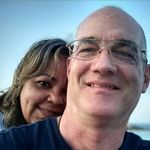0

Read, Read, Read
8年前 In the real estate business, there is an old saying; the three most important things are location, location, location. Once you’ve mastered the sounds, the phonemes, of English, one might argue that the three most important things are reading, reading, reading. I like to tell my students that each page of good writing by a native English writer is a free class. After all, you get everything except for the pronunciation -- the sound. So after you have learned to produce the 44 phonemes of English [with some variation depending on locale] reading is key. There is absolutely no substitute for it.
As Clifford Prator, Jr. and Betty Robinett wrote in “Manual of American English Pronunciation”, “The eye is more analytical than the ear.” They add, “Most people learn most things better through the eye than through the ear.” [p.2] This is no argument against using TV, movies, Ted Talks, CNN, BBC, etc. Obviously students need to learn the phonemes of English, but since there are less than 50 of them, it isn’t usually the biggest challenge. After those sounds are learned then the student simply must read a lot if they want to improve a lot. The written page will teach syntax, lexis, idioms, phrasal verbs, use of verb tenses, relative clause construction, collocations, use of gerunds vs. infinitives, modals, linking words, etc., etc,. etc. In short, skilled native English writers can teach you absolutely everything about the use of English --- again, except for one thing -- sound [by 'sound' I include all aspects of spoken English including intonation, rhythm, linking, etc.]. By all means, use songs, TV, movies, etc. to learn the sounds, and practice listening comprehension. But the speed of the language in TV and movies makes it hard to stop and look up a word. It will often become a lost sound, a blur -- gone -- unless you are using subtitles. But reading gives your brain a picture to record, and then you can look up the meaning and pronunciation at your leisure.
By all means come to us at Verbling for the help, the “coaching” as it were in your journey of learning English. But don’t cheat yourself by thinking there is some “quick and easy” way to become “near-native.” There isn’t. And those who say there is may also have some swamp land to sell you in Florida. It’s a long climb -- but one you can enjoy-- learning a second or third language. And use every resource out there -- especially the free ones. Online newspapers will usually give you 5 or 10 articles a month to read at no charge. Check out The Washington Post, The New York Times, The Baltimore Sun, The Boston Globe, The Miami Herald, just to mention a few. And just between the US and the UK, there must be hundreds of online newspapers, so you never need to pay for a subscription. You can copy and paste them to your Google drive, mark them up, and keep them for later review. It bears repeating, every quality page of English you read, whether from a novel, short story, newspaper, etc. -- every single page is a free English class. Take advantage of them, and speed up your progress. When you were learning your first language, Spanish, Russian, Portuguese, whatever -- you remember all those books they made you read in grade school, high school, university and perhaps beyond. Why did they make you read all those? Because when it comes to learning -- and that includes learning a second language -- there is no substitute for reading a lot. Think of what you’d read in your native language for enjoyment --- now look for the same topics in English, and enjoy the journey!
